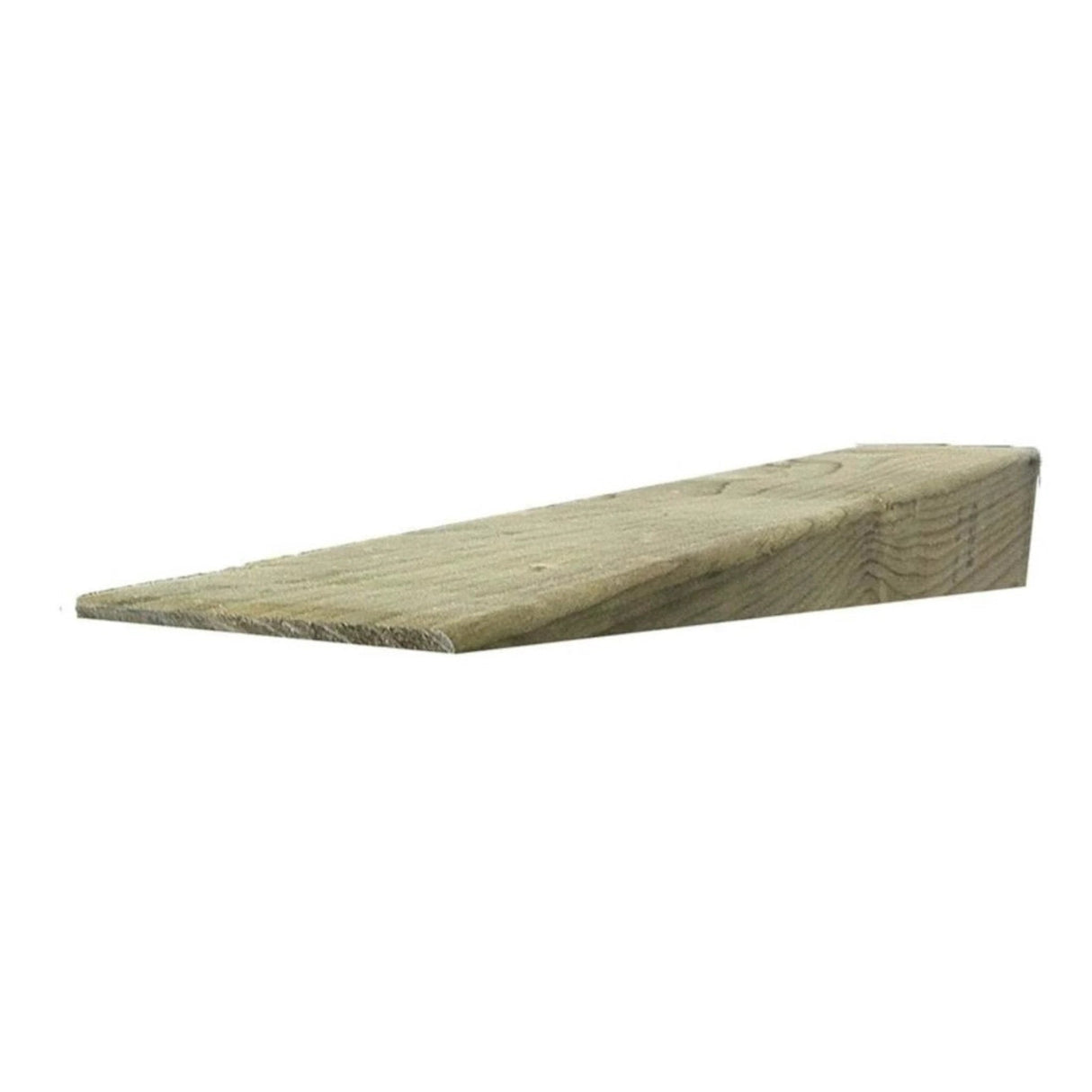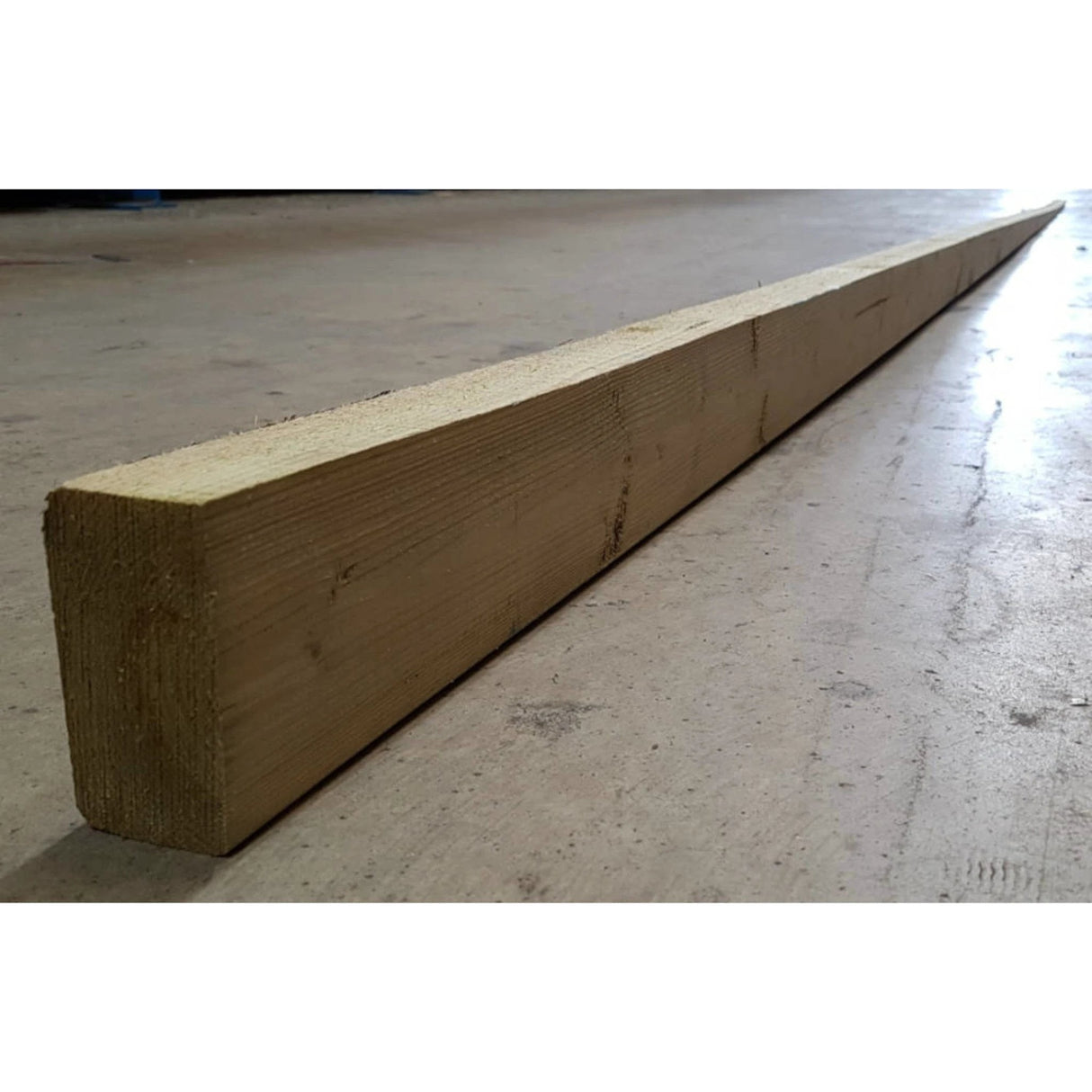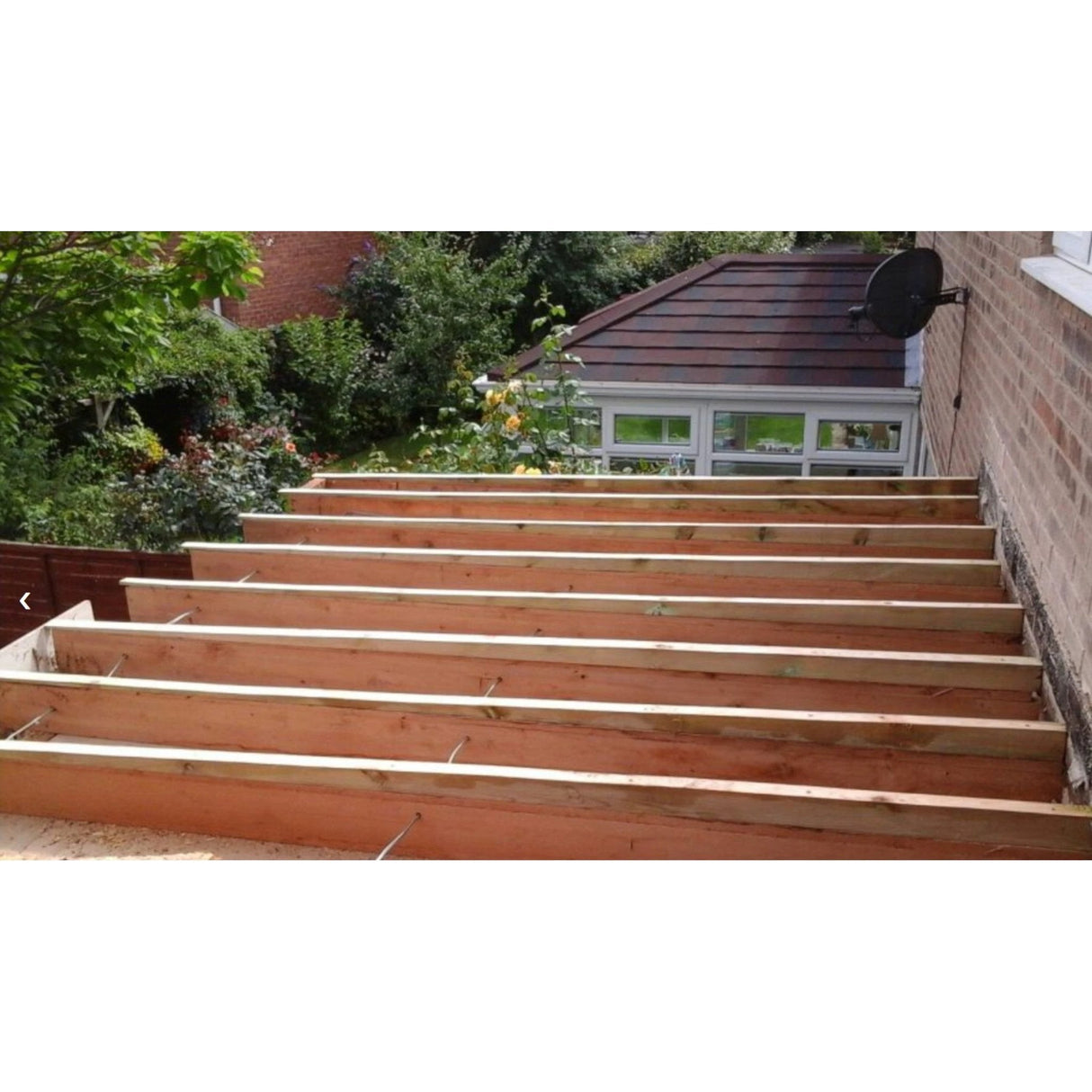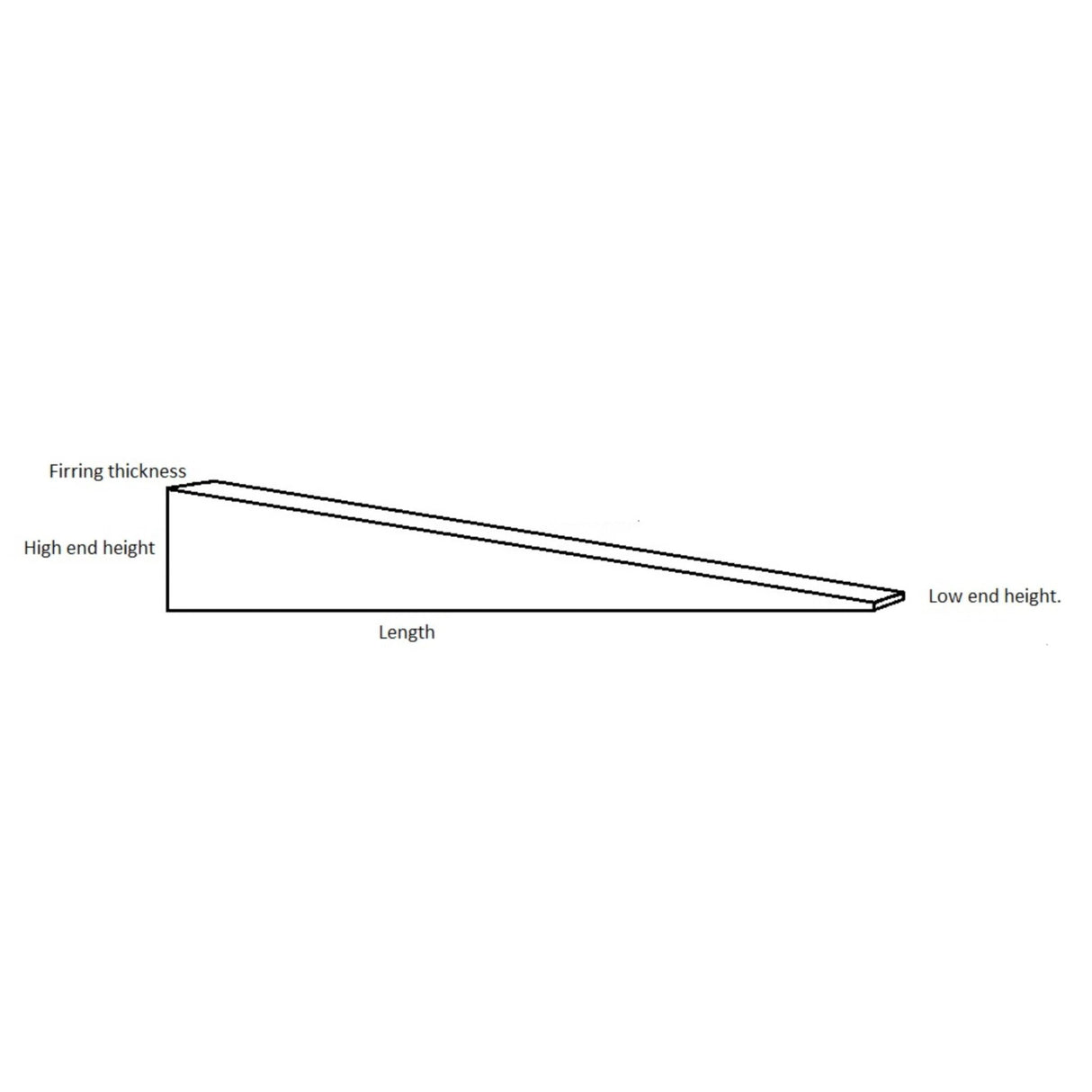Timber Firring Strips (Pair)
Timber Firring Strips (Pair) - 2.4m x 47mm x 50mm to 0mm (2" x 2") is backordered and will ship as soon as it is back in stock.
Couldn't load collection availability

Delivery charges will vary depending on your location.
To find out delivery cost to your postcode, add the products your require to your basket and then review your basket, entering the delivery postcode
We look to dispatch all products same-day where possible, we use a close network of couriers we have worked alongside for a number of years and will share any and all shipping updates with you directly.
To ensure that rainwater can drain efficiently from a flat roof, a fall must be created in the structure. Firring strips, otherwise known as furring strips are used to accurately angle water into guttering and drainage systems, helping to maintain the integrity of the roof and avoid pooling and flooding.
Our furring strips are sustainably sourced and have been treated to ensure longevity and weather protection once installed. You can order in a variety of different sizes to suit your project requirements.
What are timber firrings?
Timber firrings are thin strips of timber that feature diagonal cuts along the length of the batten, enabling it to taper, so that one end has a deeper end than the other. When a flat roof is being constructed, you use timber firrings to create a fall, which allows the water to run to the lower side of the roof. In most cases, timber firrings will have a fall of 1:40, although the final minimum fall may be 1:80 once on-site inaccuracies are considered.
What kind of wood is a firring strip?
Timber firring pieces are usually made from softwoods such as pine; this ensures they are easy to attach and fix into position. Ours are carefully machined from premium construction timbers here in the UK.
Firrings are usually cut in pairs, and to minimise waste, pieces on either side of the cut line are used. Cutting the treated timber in this way can expose the heart of the wood, which may not have received a full charge of preservative treatment; we therefore always recommend that any cut faces are treated to prevent any future issues.
What size are timber firrings?
Flat roof firrings are cut using specialist equipment, with a few different sizes available. Timber firrings with a 4.8m area size (4800mm x 100mm) are the most common types used for flat roof construction.
Can firrings run across joists?
You can fix tapered timber firrings across joists to create the fall, providing they are set level so that the ceiling is even before any boards are laid.

Description
Description
To ensure that rainwater can drain efficiently from a flat roof, a fall must be created in the structure. Firring strips, otherwise known as furring strips are used to accurately angle water into guttering and drainage systems, helping to maintain the integrity of the roof and avoid pooling and flooding.
Our furring strips are sustainably sourced and have been treated to ensure longevity and weather protection once installed. You can order in a variety of different sizes to suit your project requirements.
What are timber firrings?
Timber firrings are thin strips of timber that feature diagonal cuts along the length of the batten, enabling it to taper, so that one end has a deeper end than the other. When a flat roof is being constructed, you use timber firrings to create a fall, which allows the water to run to the lower side of the roof. In most cases, timber firrings will have a fall of 1:40, although the final minimum fall may be 1:80 once on-site inaccuracies are considered.
What kind of wood is a firring strip?
Timber firring pieces are usually made from softwoods such as pine; this ensures they are easy to attach and fix into position. Ours are carefully machined from premium construction timbers here in the UK.
Firrings are usually cut in pairs, and to minimise waste, pieces on either side of the cut line are used. Cutting the treated timber in this way can expose the heart of the wood, which may not have received a full charge of preservative treatment; we therefore always recommend that any cut faces are treated to prevent any future issues.
What size are timber firrings?
Flat roof firrings are cut using specialist equipment, with a few different sizes available. Timber firrings with a 4.8m area size (4800mm x 100mm) are the most common types used for flat roof construction.
Can firrings run across joists?
You can fix tapered timber firrings across joists to create the fall, providing they are set level so that the ceiling is even before any boards are laid.
Payment & Security
Payment methods
Your payment information is processed securely. We do not store credit card details nor have access to your credit card information.
















